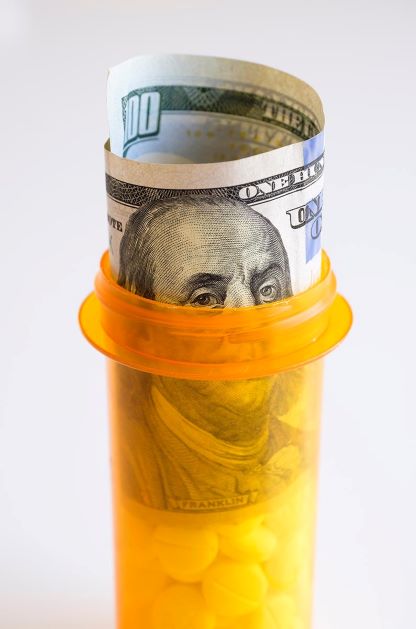Many of the 11 million Americans taking antipsychotics were never told of the risk of developing uncontrollable movements that can be permanent.
None of the hundreds of meetings and sessions offered at the annual conference of the American Psychiatric Association in May was dedicated to discussing the potentially disabling and irreversible movement disorders, including tardive dyskinesia and akathisia, caused by the antipsychotic drugs the psychiatrists prescribe.
Tardive dyskinesia (TD) refers to the drug-induced, involuntary muscle movements that can develop over time from taking antipsychotic drugs, the class of drugs typically prescribed for symptoms of psychosis, mania, anxiety and depression. TD has also been linked to other classes of psychiatric drugs, including antidepressants, mood stabilizers and stimulants.

This psychiatric drug-induced physical disorder is characterized by repetitive, involuntary muscle movements of the face, lips, tongue, limbs, and torso that can range from a slight tremor, unnoticed by the patient, to uncontrollable movements of the entire body. More severe involuntary movements can become a disabling condition and can cause such embarrassment that the individual withdraws from social interaction.
“Tardive dyskinesia is a dreadful disorder caused by all the antipsychotic drugs,” according to psychiatrist Peter Breggin, MD. “People who suffer from it tend to become isolated from society and many become disabled.”
Currently, over 11 million Americans are taking antipsychotics, including more than 800,000 children and teens under the age of 18.
Studies have found that TD will eventually develop in 20%-30% of those taking antipsychotic drugs. Older age is a major risk factor for TD, with up to 50% to 60% of those over the age of 45 ultimately developing the movement disorder. This prevalence suggests that several million Americans may already be experiencing the symptoms of TD.
Race is also a risk factor for TD. A 2004 evaluation found antipsychotic-induced TD is more prevalent in African Americans than Americans of European descent. This finding is even more consequential in light of the fact that African Americans are disproportionately diagnosed with psychosis and schizophrenia and then are likely to be prescribed antipsychotic drugs.
Even after discontinuing the drugs, TD may persist for years in a majority of patients who develop the condition, and it is often permanent. A 2014 study at Emory University’s movement disorders clinic found that only about one in eight patients ever fully recover from TD.
“Tardive dyskinesia is a dreadful disorder caused by all the antipsychotic drugs. People who suffer from it tend to become isolated from society and many become disabled.”
— Psychiatrist Peter Breggin, M.D.
Many taking antipsychotic drugs report they were not told of the risk of tardive dyskinesia by their doctor. A 2019 survey found that 58% of patients were not aware that the antipsychotics they were taking could cause TD. Among those suffering TD symptoms, 80% were emotionally distressed by their jerky movements, nearly half (47%) said it affected their job performance, and two-thirds reported a drop in self-esteem (68%) and self-confidence (64%).
Antipsychotics can also cause akathisia, a movement disorder characterized by restlessness and an inability to sit still. According to medical researcher Peter Gøtzsche, MD, “akathisia is one of the most dangerous harms of [antipsychotics] and depression drugs, as it predisposes [patients] to suicide, violence and homicide.” He says that psychiatrists typically misinterpret akathisia’s symptom of restless behavior as the patient’s need for a higher dose of the antipsychotics, which only worsens the situation.
One study found that half of all fights in a psychiatric ward stemmed from the akathisia related to the antipsychotic drugs the patients were taking, while another study revealed that 79% of mentally ill patients who attempted suicide suffered from the agitation of akathisia.

The continued prescribing of potentially disabling antipsychotic drugs is being further enabled by highly profitable drugs that were developed to treat TD, which patients take while they continue to stay on the antipsychotic or other drugs that are causing their TD. Drug companies manufacturing TD treatments have predicted sales of $1 billion to $2 billion per year. [9] The TD-treatment drugs come with their own side effects, ironically including akathisia and agitation, as well as depression and suicidality.
The Citizens Commission on Human Rights (CCHR) continues to raise public awareness of the risks of serious side effects and withdrawal symptoms from antipsychotics and other psychiatric drugs, so that consumers and their physicians can make fully informed decisions about starting or stopping the drugs.
CCHR recommends a complete physical examination with lab tests, nutritional and allergy screenings, and a review of all current medications to identify any physical causes of unwanted mental or behavioral symptoms, which might otherwise be misdiagnosed as a psychiatric disorder and incorrectly treated.
WARNING: Anyone wishing to discontinue or change the dose of a psychiatric drug is cautioned to do so only under the supervision of a physician because of potentially dangerous withdrawal symptoms.
